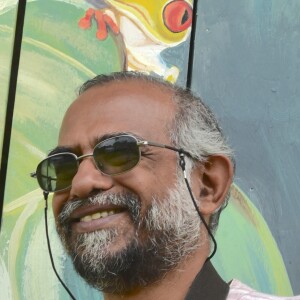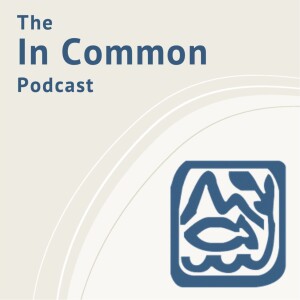
Science and Practice #5: Radical Alternatives to Development with Ashish Kothari
 2023-01-11
2023-01-11
In this episode, Hita and Michael speak with noted Indian environmentalist Ashish Kothari, who works at the interface between development and environment and focuses particularly on radical alternatives to development discourses. Ashish is a familiar name to people working in the Indian environmental context as well as those who engage with degrowth, not least because of his strong involvement in grassroots environmental movements such as the Narmada Bachao Andolan in the country. He is one of founders of Kalpavriksh, a Non-Profit Organisation in India which deals with environmental and development issues. In addition, he wears many other hats – as an academic and teacher, as a member of international steering committees such as those of the World Commission on Protected Areas or the Convention on Biodiversity Alliance. He has also worked as a member of several Government of India committees including those responsible for assessing India’s Forest Rights Act and drafting the country’s National Wildlife Action Plan and Biodiversity Act. He is also the coordinator of Vikalp Sangam, a platform that brings together organisations and individuals who work on development alternatives across India. He is also one of the editors of the book Pluriverse: a post development dictionary.
In our conversation Ashish reflects upon the influence of his early childhood experiences with environmental activism – particularly protests against the shooting of the Great Indian Bustard by Saudi Arabian Princes and against tree felling in the Delhi Ridge Forest upon his engagement with environmental conservation. He asks the pertinent question: can wildlife conservation happen at the cost of human rights? We speak about the eternal debate of development vs the environment, and his conviction that the idea of development per se itself is deeply flawed. Instead, he says, what we need are different notions of well-being emerging from different parts of the world serving to replace the idea of development. We spoke about the dangers of viewing community led action as yet another panacea but also recognising the inherent strength present within them. We discuss moving beyond dichotomies of community vs government instead looking towards alternatives where we can enable communities to regain their balance in different ways. We reflect upon the importance of building and being part of networks that both keep you going but also stand ready to continue in your place, and how that very act of working together poses further challenges if one were to consider identity building, branding or even issues of satisfying personal egos. We end with some reflection on Ashish’s conceptualization of the term Eco Swarajya and the challenges associated with misappropriation of culturally or spiritually loaded terms.
Some of the initiatives that Ashish mentions during this interview are:
Vikalp Sangam: https://vikalpsangam.org/
Kalpavriksh: https://kalpavriksh.org/
Radical Ecological Democracy: https://radicalecologicaldemocracy.org/
Global Tapestry of Alternatives: https://www.globaltapestryofalternatives.org/
Pluriverse: a post development dictionary: https://www.ehu.eus/documents/6902252/12061123/Ashish+Kothari+et+al-Pluriverse+A+Post-Development+Dictionary-2019.pdf/c9f05ea0-d2e7-8874-d91c-09d11a4578a2
Ashish’s website and blog: https://ashishkothari.in/ ; https://ashishkothari51.blogspot.com/
More Episodes
 2021-06-28
2021-06-28
 412
412
 2021-06-01
2021-06-01
 742
742
 2021-05-28
2021-05-28
 337
337
 2021-05-10
2021-05-10
 463
463
 2021-05-03
2021-05-03
 618
618
 2021-04-22
2021-04-22
 422
422
 2021-04-19
2021-04-19
 470
470
 2021-03-08
2021-03-08
 225
225
 2021-02-15
2021-02-15
 838
838
Create your
podcast in
minutes
- Full-featured podcast site
- Unlimited storage and bandwidth
- Comprehensive podcast stats
- Distribute to Apple Podcasts, Spotify, and more
- Make money with your podcast
It is Free
- Privacy Policy
- Cookie Policy
- Terms of Use
- Consent Preferences
- Copyright © 2015-2024 Podbean.com





